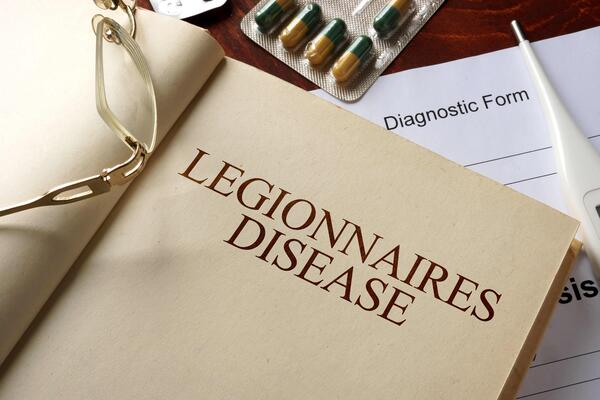
How To Prove Negligence in a Legionnaire’s Disease Claim
Some diseases are pretty commonplace, like the flu, and a diagnosis doesn’t raise any eyebrows; you take your medication and wait for the symptoms to ease. Others, like Legionnaire’s disease, are relatively rare.
Thanks to advancements in freshwater treatments, the bacteria is rarely able to grow and thrive. So, if you’re diagnosed with Legionnaires disease, do you have any legal options? Can you receive compensation for your damages?
The answer may be yes if you can show negligence on behalf of the building owner or operator. However, proving negligence in Legionnaires' disease cases.
Causes of Legionnaires Disease
The bacteria responsible for causing Legionnaires disease can form in manmade and natural freshwater supplies, typically in warmer climates. The bacteria thrive in warm and wet conditions and are more common in man made water sources.
Legionnaire bacteria are more common in infrastructure than in a manmade lake. Think of things like plumbing and air conditioning systems. Even a water heater can be a breeding ground for the bacteria. Pools and hot tubs are another common source of infection. Symptoms of Legionnaire’s disease can include cough, fever, and even confusion.
Who’s Liable in a Legionnaire’s Disease Claim
Where you contract this form of pneumonia can play a key role in determining liability. Since the disease tends to primarily exist in manmade water sources, property owners are often liable for any outbreaks. As a property owner, they’re responsible for ensuring all plumbing, including pipes and water storage tanks are properly maintained.
If it’s a multi-family complex like apartments, townhomes, or condominiums, the property manager may be solely or partially liable for your damages. If the infection occurs at a hotel, hospital, restaurant, or on a cruise ship, the owners and/or management company may be responsible for compensating you for your injuries.
As you can see, sometimes determining liability can be a complex process, especially if more than one party may be responsible for the outbreak.
Proving Negligence in a Legionnaire’s Disease Claim
Establishing liability is a start. Now you know who to name in your premise liability claim. Most Legionnaire’s disease claims fall under premise liability laws. Remember, Legionnaire bacteria is present in manmade water systems, and this usually means the property owner or manager is the liable party.
Once you’ve determined liability, the next step is proving negligence. If you can’t show the elements of negligence, there’s a good chance you can’t file a claim for damages.
Negligence has four elements that build off each other. Usually, if you can prove the first and second elements, the others are a piece of cake. The four elements of negligence are duty, breach of duty, causation, and damages. To help better inform you, here’s a closer look at these elements.
Duty of Care
Property owners and managers have a duty to residents and visitors to ensure the premises are safe. This is a legal duty and it requires property owners to take reasonable steps to prevent any harm.
Along with ensuring the property is free from hazards, the duty also extends to the infrastructure. This means properly maintaining all plumbing systems and artificial water sources like community pools and spas.
Breach of Duty
A breach of duty occurs when property owners and managers fail to keep up with maintenance and repairs. In other words, they’re ignoring hazards that can potentially harm others.
To show a breach of duty occurred you must show the defendant’s actions or behavior aren’t what you expect from a reasonable person. For example, a reasonable person will maintain their plumbing and make any necessary repairs as soon as a problem occurs.
If a property owner is aware of an issue and fails to address the problem, this can be considered a breach of duty.
Causation
Proving causation means showing the defendant’s breach of duty is the reason you’re diagnosed with Legionnaire’s disease. You can’t just claim that the landlord’s failure to maintain the property’s plumbing system is the reason you contracted the disease. You must connect the bacteria to the property and this can be difficult.
Legionnaire bacteria incubates anywhere from 2 to 18 days before your symptoms start appearing. You’ll probably need to retrace your steps for the past three weeks to definitively show you contracted the disease on the defendant's property.
Damages
This is the final element of negligence and is usually the easiest to prove. You must show your damages are directly caused by Legionnaires disease.
If you contracted Legionnaire’s disease contact an attorney. You may be eligible to receive compensation for your damages.